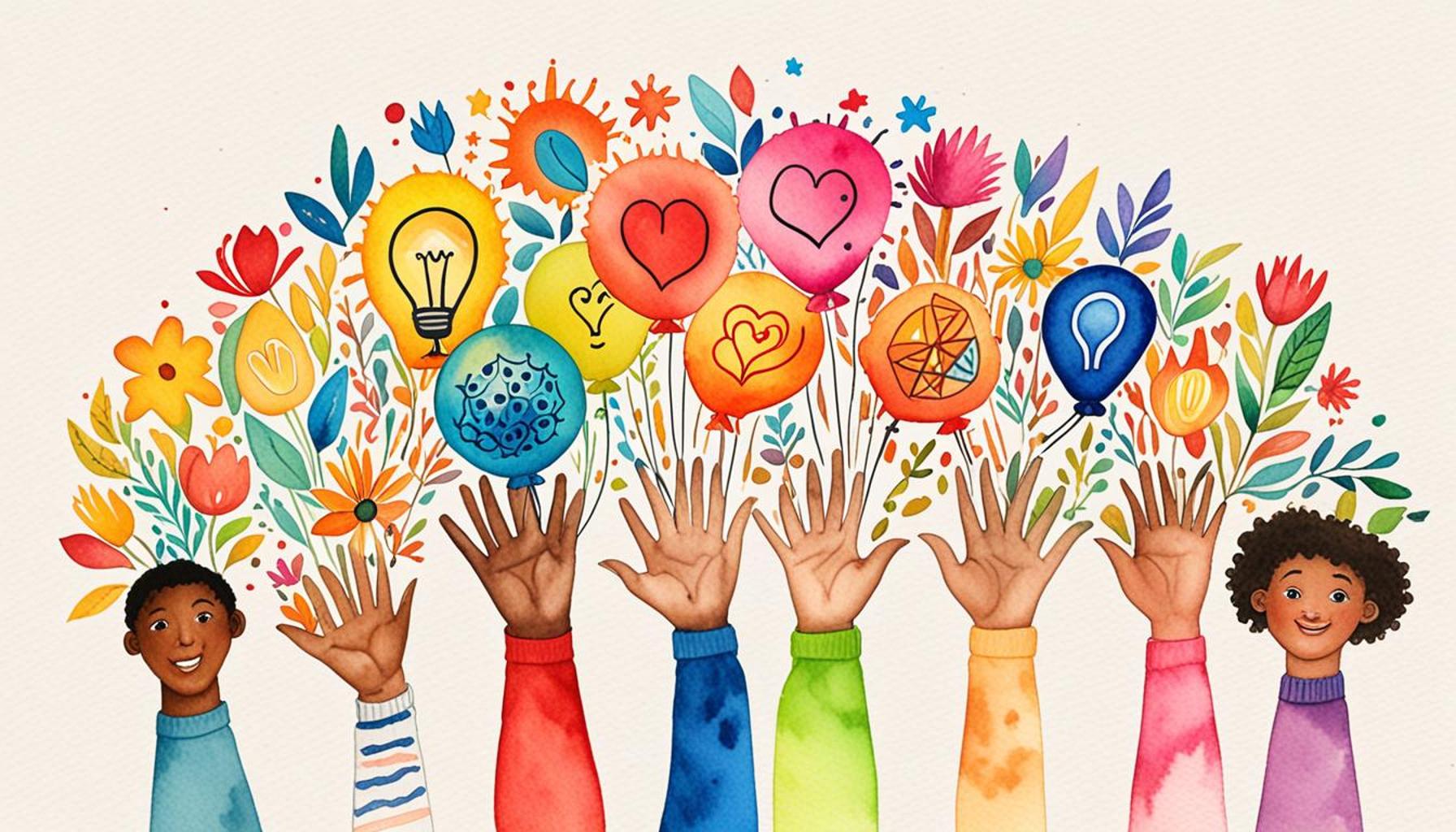The Impact of Feedback in Multicultural Teams and its Relationship with Growth Mindset

The Importance and Impact of Effective Feedback in Multicultural Teams
In today’s increasingly interconnected world, where businesses operate across borders and cultures, the formation of multicultural teams has become a defining characteristic of the modern workforce. These teams not only bring together a variety of perspectives but also a wealth of experiences stemming from different cultural backgrounds. This diversity can be a powerful catalyst for innovation and creativity, provided that there are effective feedback mechanisms in place to enhance their performance.
The Role of Feedback
Feedback acts as a cornerstone for successful teamwork, particularly in multicultural contexts. It is essential for several reasons:
- Encourages open communication: By fostering an atmosphere of trust, team members feel more comfortable sharing their thoughts and ideas. This openness can lead to more robust discussions and innovative solutions, as every member feels valued regardless of their cultural background.
- Promotes continuous learning: Constructive feedback facilitates not only skill enhancement but also personal growth. For instance, in a Nigerian marketing team composed of individuals from various ethnicities, feedback can help team members tap into each other’s strengths, thus improving overall productivity.
- Enhances team cohesion: Understanding and appreciating cultural differences through feedback strengthens interpersonal relationships. This is particularly relevant in Nigeria, a country known for its rich tapestry of cultures and languages, where feedback can help bridge cultural gaps.
Feedback and Growth Mindset
The synergy created by linking feedback with a growth mindset can profoundly influence team dynamics. A growth mindset, characterized by the belief that abilities can be developed through dedication and hard work, empowers team members to view feedback not as criticism but as an opportunity for improvement. Key elements in this dynamic include:
- Resilience: A culture that views mistakes as stepping stones allows teams to take calculated risks without the fear of failure. This is crucial in a multicultural setting where varying attitudes towards failure can exist.
- Adaptability: Embracing feedback constructively encourages team members to be flexible and responsive to input. For example, in a multicultural team working on projects in Nigeria, adaptability can lead to tailored strategies that resonate better with local markets.
- Collaboration: A cooperative spirit flourishes when team members navigate and blend diverse perspectives. In a project where there are representatives from various Nigerian ethnic groups, collaboration bolstered by effective feedback can lead to innovative solutions that cater to a broader audience.
Understanding the intricate relationship between feedback and a growth mindset is crucial, particularly in culturally rich contexts like Nigeria. Teams comprised of individuals from different ethnic backgrounds strive for excellence and, through effective feedback, can unlock their full potential by embracing the diverse talents and experiences each member brings to the table.
ADDITIONAL INSIGHTS: Expand your understanding here
Understanding the Dynamics of Feedback in Diverse Cultural Landscapes
In multicultural teams, the impact of feedback transcends mere performance evaluation; it shapes the organizational culture and drives team synergy. Given Nigeria’s diverse ethnic composition, the interplay between feedback and cultural backgrounds becomes particularly evident. This dynamic not only influences how feedback is delivered and received but also determines its effectiveness in promoting a growth mindset among team members.
Cultural Nuances in Feedback Delivery
The approach to providing feedback can vary widely across different cultures. In Nigeria, where over 250 ethnic groups coexist, team members may have varying comfort levels with direct versus indirect communication styles. For instance, individuals from more collectivist cultures may prefer feedback that emphasizes group harmony, while those from more individualistic backgrounds might favor direct and candid critiques. Recognizing these differences is vital for leaders seeking to cultivate an inclusive atmosphere.
- Cultural sensitivity: It is essential for team leaders to understand the cultural backgrounds of their members. Feedback that is delivered without regard to cultural sensitivities can lead to misunderstandings and resentment. Leaders should tailor their feedback approach to suit the cultural preferences of team members, ensuring that messages are conveyed positively and constructively.
- Context matters: In a Nigerian context, feedback should be provided in a setting that respects local customs and traditions. For example, addressing team members in a relaxed, informal setting may yield more positive reactions and promote openness compared to a formal boardroom. The goal is to create an environment where team members feel valued and understood.
- Utilizing local examples: Incorporating culturally relevant anecdotes or illustrations when giving feedback can help team members relate better to the information presented. For example, utilizing local proverbs or stories to exemplify key points can make feedback more relatable and impactful.
The Effect of Feedback on a Growth Mindset
The relationship between effective feedback and a growth mindset is integral to fostering a culture of continuous improvement in multicultural teams. In environments where feedback is framed positively, team members begin to view challenges and missteps as opportunities for personal and team development.
Adopting a growth mindset within diverse teams can yield several beneficial outcomes:
- Encouraging innovation: Team members who perceive feedback as a pathway to learning are more likely to take risks and propose creative solutions. This is crucial in regions like Nigeria, where innovation can drive business success amidst varying consumer needs.
- Building trust: When feedback is perceived as supportive rather than punitive, it fosters an atmosphere of trust and collaboration. Trust allows for deeper connections among team members, enhancing overall cohesion.
- Driving accountability: A culture that values feedback equips team members with the mindset to be accountable for their growth. This accountability rises when individuals appreciate that their efforts contribute to not only personal growth but also the team’s collective success.
As such, understanding the intricate relationship between feedback and a growth mindset is crucial for navigating the challenges and opportunities presented by multicultural teams. By embracing effective feedback practices rooted in cultural awareness, teams can harness their diversity to achieve remarkable outcomes.
The Role of Feedback in Enhancing Team Dynamics
In multicultural teams, effective communication is essential for cultivating a growth mindset. Feedback serves as a vital tool in this process, enabling team members to share diverse perspectives and insights, ultimately enriching the collaboration. Studies have indicated that constructive feedback not only fosters individual growth but also strengthens team cohesion, thus promoting an environment of continuous learning. The significance of cultural context cannot be overstated, as variations in communication styles may impact how feedback is received and interpreted.Multicultural teams often bring together individuals from different cultural backgrounds, each possessing unique approaches to feedback. For instance, in some cultures, direct feedback is appreciated, while in others, a more indirect method is preferred. This divergence necessitates an understanding of these varying preferences to maximize the effectiveness of feedback. Teams that prioritize awareness of these differences and adapt their feedback mechanisms tend to experience enhanced trust, reducing misunderstandings and fostering a culture where team members feel valued and motivated.Moreover, the concept of a growth mindset plays a crucial role in how feedback is perceived and utilized. Individuals with a growth mindset view challenges and constructive criticism as opportunities for growth rather than threats. This mindset encourages team members to embrace feedback as a valuable component of their learning journey, promoting resilience and adaptability in a dynamic work environment. Research suggests that when teams adopt a growth mindset culture, they are better equipped to navigate challenges and seize opportunities, leading to enhanced overall performance.As the conversation around feedback continues to evolve, it is imperative for leaders of multicultural teams to adopt best practices that encourage open dialogues. Implementing structures like regular feedback sessions, peer reviews, and anonymous suggestion boxes can help accommodate diverse communication styles and preferences. By actively seeking and integrating feedback, teams not only advance their collaborative efforts but also create a more inclusive workplace that respects and harnesses cultural differences. In the context of growth, feedback can illuminate areas of improvement while celebrating achievements. Establishing a feedback-rich culture will invariably position multicultural teams on a path toward innovation and success, enabling them to thrive in an increasingly interconnected world.
CHECK OUT: Click here to explore more
Navigating Feedback for Enhanced Team Dynamics
The journey towards an effective feedback culture in multicultural teams hinges on harnessing the diverse perspectives that members bring to the table. In Nigeria, where multiculturalism is not just present but also celebrated, team leaders have the unique opportunity to leverage this diversity to enrich the feedback process. Understanding how team members perceive feedback through the lens of their cultural backgrounds can significantly enhance communication and collaboration.
Building a Feedback Loop
Creating a sustainable feedback loop is essential for fostering a thriving environment in multicultural teams. This loop involves not only delivering feedback but also encouraging team members to provide feedback in return. In Nigeria’s multicultural landscape, team members might feel hesitant to share their thoughts due to entrenched respect for hierarchy or differences in communication styles. Leaders can combat this by establishing regular, structured feedback sessions that create a safe space for everyone to express their views.
- Encouraging open dialogue: By promoting open dialogues around feedback, teams can demystify the process and make it more approachable. Team-building activities or workshops on effective communication can lay the groundwork for these discussions, allowing members to feel more comfortable with giving and receiving feedback.
- Feedback training: Investing in feedback training can equip team members with the skills to communicate effectively across cultural boundaries. Such training might include role-play scenarios where participants practice delivering feedback to peers from different cultural backgrounds, thus fostering an understanding of each other’s preferences and comfort levels.
Feedback as a Tool for Personal and Professional Growth
In the context of a growth mindset, feedback acts as a catalyst for personal and professional expansion. Multicultural teams that embrace this ethos foster an atmosphere where learning is prioritized over criticism. The impact of this approach can be especially pronounced in Nigeria, where individual and community growth are often intertwined.
- Resilience and adaptability: Feedback encourages resilience as team members learn to adapt and iterate on their ideas. This adaptability is vital in diverse markets and can lead to innovative solutions tailored to meet the unique needs of various consumer bases across Nigeria.
- Common goals through shared learning: When feedback emphasizes collective learning, it aligns the team towards common goals. Team members can share their knowledge, allowing for cross-pollination of ideas. For instance, the practice of storytelling—a valued tradition in many Nigerian cultures—can be a powerful method of sharing experiences that validate feedback and motivate change.
The Role of Leadership in Shaping Feedback Culture
Leadership plays a pivotal role in shaping the feedback culture within multicultural teams. Leaders must model the behavior they wish to see by openly receiving feedback themselves. Demonstrating vulnerability to feedback can catalyze a significant shift in team dynamics, as members observe that feedback is a two-way street.
- Transparent decision-making: Involving team members in decision-making processes following their feedback fosters a sense of ownership. When team members see their input valued and acted upon, it reinforces the idea that their contributions hold significance, enhancing the overall morale of the team.
- Cultural appreciation: Leaders who actively acknowledge and celebrate the cultural diversity within their teams will create a more inclusive environment. For instance, recognizing and rewarding team members who exemplify a strong growth mindset through their response to feedback can encourage others to adopt similar behaviors.
Exploring the multifaceted relationship between feedback and growth mindset in multicultural teams can yield profound insights into enhancing collaboration and performance. The nuances of feedback, when framed in a culturally sensitive manner, affect not just team cohesiveness but can also transform individual attitudes towards continuous learning and improvement within the workplace.
LEARN MORE: This related article may interest you
Conclusion
In the evolving landscape of today’s workplaces, especially in a multicultural context like Nigeria, the role of feedback is paramount in shaping team dynamics and fostering a strong growth mindset. Embracing a culture that values direct yet culturally sensitive feedback can significantly enhance communication, trust, and collaboration among team members from diverse backgrounds. This intricate interplay between feedback and growth mindset encourages individuals to view challenges as opportunities for personal and professional development rather than as mere obstacles.
Furthermore, leadership’s proactive approach in establishing a robust feedback culture is critical. Leaders who demonstrate openness to feedback not only set a precedence of growth but also empower team members to engage authentically. By involving team members in the feedback process and valuing their insights, organizations can cultivate a sense of ownership and belonging that extends beyond mere collaboration. In this way, feedback becomes a dual-purpose tool—serving as a mechanism for individual improvement and a pathway for achieving collective goals.
As Nigeria continues to grow as a tapestry of cultures, understanding the nuances of feedback can lead to substantial innovations and enhanced adaptability within teams. Future research should delve deeper into specific cultural dimensions of feedback practices, exploring how localized approaches can further elevate team performance. By harnessing the power of feedback accompanied by a growth mindset, organizations can transform potential into achievement, creating environments where diversity is not just acknowledged but celebrated as a cornerstone of success.



